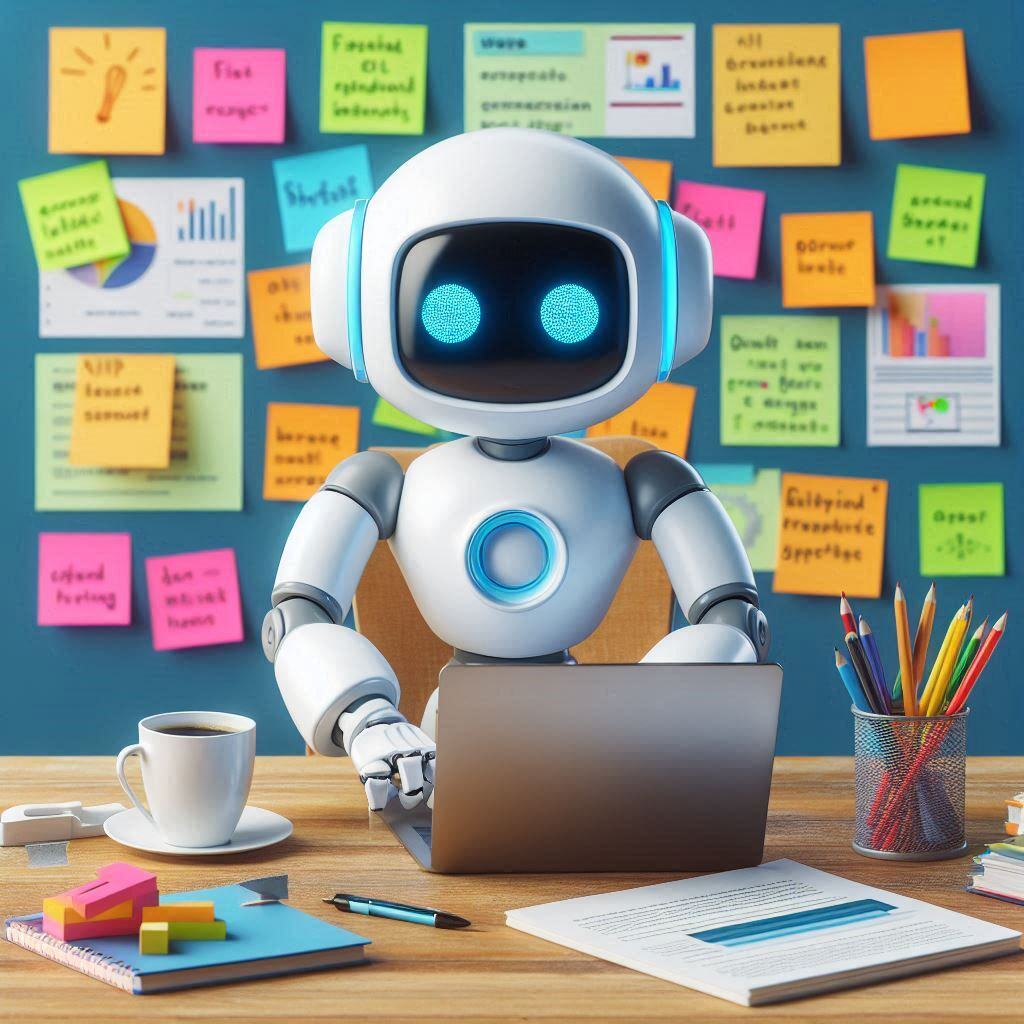AI Grant Writing: Winning with Multi-Agent Systems
In the competitive world of grant funding, every advantage counts. Nonprofits and research organizations are constantly seeking innovative ways to...
Learn how small businesses can use AI for marketing to streamline content creation, personalize interactions, and gain a competitive edge.
Small businesses are increasingly adopting AI to enhance their marketing efforts, enabling them to compete with larger enterprises. By leveraging AI, small businesses can streamline content creation, personalize customer interactions, and optimize their marketing strategies with agility and efficiency. This blog explores how small businesses can use AI to gain a competitive edge in marketing, positioning themselves to outmaneuver larger competitors.
Small businesses have the inherent advantage of agility, allowing them to quickly implement new technologies and strategies. In the context of AI, this agility becomes a significant asset. Large corporations often face bureaucratic delays when adopting new technologies due to their size and the number of stakeholders involved. On the other hand, small businesses can quickly adopt AI tools, making adjustments on the fly and responding to market changes in real time.
Why Agility Matters: Agility in marketing means being able to quickly pivot your strategies based on data and trends. For small businesses, this can be the difference between staying ahead of the competition and getting lost in the noise. AI tools enable small businesses to analyze data rapidly, draw insights, and implement changes almost immediately. This is particularly important in today’s fast-paced digital environment where consumer behaviors and market trends can shift overnight.
Example of Agility in Action: Consider a small online retailer that uses AI to monitor social media trends and customer feedback in real-time. By leveraging AI, they can quickly adjust their product offerings and marketing messages to align with what customers are currently interested in. Larger competitors might take weeks to go through the same process due to internal approval chains and larger teams. This rapid response capability gives small businesses a significant advantage in staying relevant and appealing to their target audience.
Implementing AI with Minimal Disruption: Small businesses can integrate AI tools into their existing workflows with minimal disruption. For example, AI-driven marketing automation platforms can be added to current CRM systems to enhance email marketing campaigns without overhauling the entire system. This flexibility allows small businesses to benefit from AI without the need for extensive training or reorganization.
Content creation is a cornerstone of effective marketing, but it can be resource-intensive. Large companies often have entire teams dedicated to content production, but small businesses can level the playing field by using AI-driven tools to create high-quality content quickly and efficiently.
The Power of AI in Content Creation: AI tools for content creation are designed to assist with everything from generating blog topics to writing full-length articles. These tools use natural language processing (NLP) to produce content that is not only relevant but also engaging. For small businesses, this means being able to maintain a robust content calendar without the need for a large team or excessive time investment.
Competitive Edge: Speed and Relevance AI-driven content creation allows small businesses to produce and publish content at a pace that large companies may struggle to match. While a large corporation might take weeks to brainstorm, draft, revise, and publish a blog post, a small business using AI can complete this process in a matter of days or even hours. This speed allows small businesses to capitalize on trending topics and stay at the forefront of industry discussions.
Real-World Example: A small digital marketing agency could use an AI tool to generate content ideas, create blog posts, and even optimize them for SEO. By doing so, they can produce a steady stream of content that keeps their clients’ websites active and engaging. This not only saves time but also helps the agency compete with larger firms that might have more resources but less flexibility.
Ensuring Quality with AI: One common concern about AI-generated content is quality. However, modern AI tools are increasingly sophisticated, capable of producing content that meets high standards of grammar, style, and relevance. Small businesses can further enhance this by having human editors review AI-generated content, ensuring that it aligns with their brand voice and messaging.
Personalization is no longer just a nice-to-have in marketing—it’s a necessity. Consumers expect brands to understand their preferences and deliver tailored experiences. For small businesses, AI offers the ability to deliver this level of personalization at scale, something that was previously out of reach without large teams and complex systems.
AI-Driven Personalization: AI can analyze vast amounts of customer data to uncover insights that inform personalized marketing strategies. This can include everything from tailoring email content based on past purchases to customizing website experiences based on browsing behavior. The ability to personalize at scale allows small businesses to build stronger relationships with their customers, driving loyalty and repeat business.
Why Personalization Matters: In a crowded marketplace, personalization helps small businesses stand out. When customers receive marketing messages that are relevant to their needs and interests, they are more likely to engage with the brand. This not only increases conversion rates but also improves customer satisfaction and retention.
Example of Effective Personalization: An online boutique might use AI to analyze customer purchase history and browsing behavior. Based on this data, the AI could automatically generate personalized email campaigns featuring products that are most likely to appeal to each customer. This level of personalization helps the boutique compete with larger retailers by offering a shopping experience that feels tailored to each individual customer.
Balancing Automation with Personal Touch: While AI can handle much of the heavy lifting when it comes to personalization, it’s important for small businesses to maintain a personal touch. This can be achieved by combining AI-driven insights with human creativity and empathy. For example, while AI might suggest which products to promote to a particular customer, the business owner could add a personal note or offer to the email to make it feel more personalized.
Small businesses often operate with limited staff, making efficiency crucial. AI-driven automation tools can handle a variety of marketing tasks that would otherwise require significant time and resources, allowing small businesses to do more with less.
Streamlining Operations with AI: AI can automate repetitive tasks such as data entry, customer follow-ups, and social media posting, freeing up time for staff to focus on more strategic initiatives. For small businesses, this means being able to maintain a high level of service and engagement without needing to hire additional staff.
Competitive Edge: Cost Efficiency Automation doesn’t just save time—it also reduces costs. By automating routine tasks, small businesses can operate more efficiently, lowering overhead costs and improving profit margins. This is particularly important in competitive industries where margins are tight, and every dollar counts.
Example of AI-Driven Automation: A small e-commerce store could use AI to automate order processing, inventory management, and customer service inquiries. For example, AI-powered chatbots can handle common customer questions and issues, allowing human staff to focus on more complex tasks. This not only improves efficiency but also enhances the customer experience by providing quick, reliable support.
Maintaining a Human Touch in Automation: While AI can handle many aspects of automation, it’s important for small businesses to ensure that the human touch is not lost. This can be achieved by using AI to handle routine tasks while reserving human interaction for more complex or sensitive customer interactions. For example, while an AI chatbot might handle initial customer inquiries, human staff could step in for more detailed support or problem resolution.
One of the most significant benefits of AI for small businesses is the ability to create customized solutions that fit their specific needs. No-code AI tools, like those offered by Integrail, allow businesses to build their own AI applications without needing extensive technical expertise.
Tailoring AI to Fit Your Business: Large enterprises often rely on standardized AI solutions that may not fully address their unique challenges. Small businesses, however, have the flexibility to develop bespoke AI tools that are tailored to their specific needs. This ability to customize AI solutions gives small businesses a distinct advantage in their niche.
Example of Customized AI Solutions: A small consulting firm might use a no-code AI platform to build a custom tool that analyzes client data and generates tailored business strategy recommendations. This customized solution allows the firm to offer a level of personalized service that larger competitors might struggle to match.
The Importance of Flexibility: In today’s fast-changing business environment, flexibility is key. AI tools that allow for easy customization and integration with existing systems enable small businesses to quickly adapt to new challenges and opportunities. This flexibility ensures that small businesses can stay competitive, even as market conditions evolve.
Balancing Customization with Ease of Use: While customization is important, it’s also crucial that AI tools remain user-friendly. Small businesses often don’t have the resources to hire dedicated IT staff to manage complex AI systems. No-code platforms that offer intuitive interfaces and easy-to-use features allow small businesses to take full advantage of AI without needing specialized technical expertise.
While AI enhances efficiency, human creativity remains essential in marketing. Small businesses can combine AI-driven insights with personal touches to create authentic, effective marketing strategies.
AI as a Complement to Human Creativity: AI is a powerful tool, but it’s not a replacement for human creativity. AI can analyze data, generate content, and automate tasks, but the creative vision and strategic direction of a marketing campaign should still come from humans. By using AI to handle the more routine aspects of marketing, small businesses can free up time for their teams to focus on creativity and innovation.
Example of Human-AI Collaboration: A small winery might use AI to analyze customer preferences and suggest wine pairings. However, the actual content and customer interactions would still be crafted with a personal, knowledgeable touch that reflects the winery’s unique brand and story. This combination of AI efficiency and human creativity results in a marketing strategy that is both effective and authentic.
Maintaining Authenticity in Marketing: In an age where consumers are increasingly skeptical of automated messaging, authenticity is more important than ever. Small businesses have the advantage of being closer to their customers, allowingto infuse their marketing with a more genuine, human touch. AI tools can handle the technical aspects, but the narrative and emotional resonance still come from human creativity. This balance ensures that marketing strategies are both data-driven and deeply connected to the brand's identity and values.
Example: A small arts and crafts business might use AI to identify trending products or customer preferences, but the actual product descriptions, marketing copy, and social media interactions are all carefully crafted by the business owner. This approach allows the brand to maintain its unique voice and connect with customers on a personal level, something that larger, more impersonal corporations might struggle to achieve.
AI empowers small businesses to compete with larger enterprises by enabling them to move faster, produce more content, and deliver personalized experiences. By strategically leveraging AI, small businesses can gain a significant competitive advantage in marketing.
Ready to elevate your marketing strategy? Discover how Integrail's no-code AI platform can help your small business outmaneuver larger competitors and achieve your marketing goals. Start your AI journey with Integrail today.

In the competitive world of grant funding, every advantage counts. Nonprofits and research organizations are constantly seeking innovative ways to...

Artificial Intelligence (AI) is no longer a futuristic concept; it's a practical tool that small businesses can leverage today to improve operations,...

Creating visuals that stand out can feel overwhelming. Whether it’s a social media post, a product banner, or even an educational infographic, you’re...
Start your journey with Integrail

Try AI Studio by Integrail FREE and start building AI applications without coding.

NEW White Paper: Discover how AI Studio accelerates your workflows